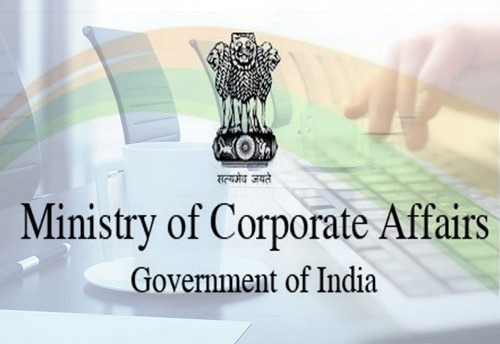P.R. Ramachandra Menon, J.@mdashFor the purpose of convenience of reference W.P.(C) 24901 of 2007 filed by the Employer/Management (which is the first case) is taken as the main case, where the interference made by the second respondent as per Ext.P7 Award, substituting the punishment of Dismissal by Discharge with superannuation benefits, even after arriving at a finding that the disciplinary authority was definitely justified in imposing major punishment (paragraph No. 10 of the Award) is subjected to challenge. W.P (C) No. 35711 of 2007 is filed by the worker, challenging the very same Award, in so far as the second respondent has upheld the validity of the Enquiry and arrived at a finding that the misconduct stated as committed by the worker stanas proved.
2. The worker was serving the employer-Bank as a Typist-Clerk and on 13.02.2003, he committed some serious misconducts as detailed in Ext, PI charge memo. The charges levelled against the worker were that he behaved in a riotous, disorderly and indecent manner to a co-worker and threatened him of dire consequences including to life in the presence of higher officials, colleagues and customers; that the conduct of the worker was quite unbecoming of a Bank employee; that the said action tarnished the image and good-will of the Management before the public/customers and further that the delinquent employee behaved in an indecent manner to a co-worker who was part-time Sweeper. The worker was simultaneously suspended from the service as per the very same proceedings, also ordering domestic enquiry.
3. In the course of the enquiry, both the sides adduced evidence, oral as well as documentary. On completion of the enquiry, the worker was found guilty vide Ext.P2 enquiry report, a copy of which was forwarded to him giving an opportunity of hearing for proving his innocence, if any. After considering the explanation, the Disciplinary Authority proposed the punishment of ''dismissal'' without notice in respect of the first charge and ''reduction of basic pay by one stage'' in respect of the second charge. The explanation given by the worker as to the proposed punishment was found not acceptable and after considering the entire evidence on record, the Disciplinary Authority arrived at a finding that the misconducts committed by the worker were proved and that the proven misconducts were very serious which deserved dismissal. Accordingly, the worker was dismissed from the service as per Ext. P3 order dated 23.02.2005
4. The worker raised an industrial dispute, which was referred to the second respondent for adjudication as I.D. No. 16 of 2005, wherein the worker filed Ext.P4 Claim Statement. The Management filed their written statement as per Ext.PS, which was answered by the worker by filing Ext.P6 rejoinder. The enquiry officer was examined before the second respondent as M.W.I and the domestic enquiry file was produced and marked as Ext.Ml. After considering the validity of the domestic enquiry as a preliminary issue, the second respondent arrived at a finding that there was violation of the principles of natural justice and that no denial of right or prejudice had been caused to the worker in any manner; thus holding that, the Enquiry was valid and proper and that the finding was not perverse,
5. Upon upholding the validity of the enquiry, the only question remained to be considered was as to the punishment imposed, After taking note of the specific instances of the misconduct stated as proved, and also as to the fact that it was a major charge, justifying the Management to impose a major punishment, the second respondent observed that the charges however were "not so much akin to charge like misappropriation of funds or any misconduct involving fraud" so as to sustain the punishment of dismissal. Though reference has been made to instances pointed out by the Management as to the earlier dismissal, which was later modified as barring of two increments, the second respondent still observed that the worker had 25 years'' of service; that he is living with his wife and children; that his wife was not employed and hence that the punishment of dismissal could be modified as that of ''discharge with all superannuation benefits'', Contending that the above interference is contrary to the scope and mandate of Section 11-A of the I.D. Act and the judicial precedents, the Management has approached this Court to restore the punishment of dismissal awarded by them. Reliance is also placed on Ext. P9, contending that as per the relevant rules of the Management Bank, in every case of dismissal, removal or termination, the employee will not be entitled to get the pensionary benefits and hence that the impugned award is contrary to the rules.
6. The case of the worker in W.P.(C) 35711 of 2007 is that there are specific instances of violation of principles of natural justice in so far as the request made by the worker for serving copies of the documents was denied in the course of the enquiry; that the demand for production of stock register was not complied with; that the name of ''Mallika'' (who is the defacto complainant with regard to the alleged instance of harassment as covered under the second charge) was not originally shown as a witness in the witness schedule, who however was brought in as a ''bolt from the blue'' during the course of examination of M.W.3 , as evident from Ext.P7 (deposition of M.W.3); that the not favourably considered, thus adversely affecting the defence of the worker and on such other aspects. It is also highlighted in the said Writ Petition that the evidence rendered by M.W.4 with regard to the instances as narrated by her will not constitute the misconduct as alleged under charge No. 2 of Ext.Pl.
7. The learned Counsel for the worker, referring to the pleadings and proceedings as above, asserts that the findings rendered by the second respondent upholding the validity of the enquiry is liable to be interfered with as not correct or sustainable, The points raised by the worker in this regard have been specifically adverted to by the second respondent in the preliminary order. It is not at all substantiated before this Court that the observations made therein are contrary to the materials on record so as to make it perverse, calling for interference. Equally important is to note that the worker has not brought out a case that the relevant documents relied on by the enquiry officer in the course of the enquiry, were not permitted to be perused by the worker so as to have caused any prejudice to him, Similarly, the relevance of stock register and its nexus with the case put forth by the worker is not established for drawing any adverse inference for its non-production. That apart, the prejudice stated as caused to the worker by examining M.W.4-Mallika who is directly connected with the second charge, is not satisfactorily brought out, in so far as Ext.PI charge memo specifically refers to the involvement of Smt. Mallika and the nature of misbehaviour. In any view of the matter, since the materials on record have been meticulously appreciated by the second respondent before arriving at the conclusion that the domestic enquiry had been held in a valid and proper manner, in compliance with the rules of natural justice, it is no more open to this Court to re-appreciate the evidence, in view of the law declared by the Apex Court on the point. Equally or more so is the position with regard to the adequacy of evidence tendered by the witnesses in the enquiry substantiating the misconducts. This being the position, this Court cannot enter in to the said arena to form a different opinion,
8. The only question then remains for consideration is as to the scope of jurisdiction entertained by the second respondent to alter the punishment imposed by the Management by invoking Section 11-A of the I.D. Act. It is true that the power u/s 11-A enables the Labour Court or Industrial Tribunal to vary, alter or modify the punishment imposed by the Management even after sustaining the validity of the enquiry, if the punishment imposed is shockingly disproportionate. Referring to the scope of judicial review exercisable by the High Court, it has been made clear by the Apex Court on many an occasion that such power shall not be read and misunderstood as a power of appeal and that, it is exercisable only when the course adopted by the Management would not have been pursued by any person of reasonable prudence and conscience so as to make it "shockingly disproportionate". Here, the circumstance under which interference was made by the second respondent is very much discernible from the observations in paragraph Nos. 9 and 10 of Ext. P7 Award. It has been observed in paragraph No. 10 that that the charge was for ''major misconduct'' and that the disciplinary authority is definitely justified in Imposing a ''major punishment''. On the next breath, the second respondent states that the misconduct in the present case cannot however be termed as a grave one as there was no misappropriation of money or fraud, which shows that the second respondent is having some misconceived idea that unless and until a misconduct involving misappropriation of funds or any fraud is involved, nobody can be inflicted with the punishment of dismissal. The said reasoning for invoking the power u/s 11-A of the I.D. Act is not at all correct. The specific circumstance for interference contemplated u/s 11-A of the Act is that the punishment should be ''shockingly disproportionate''; i.e., it should evoke some sense of ''shock'' to the conscience in relation to the gravity of the proven misconduct. Considering the same, no such inference could be drawn in view of the observation of the second respondent in the previous sentence that the charge was for ''major misconduct'' and that the disciplinary authority was definitely justified in imposing major punishment. The second respondent also arrived at a finding that the conduct on the part of the worker made him to be sent out from the service and that he was no longer liable to be continued in the service of the Bank. It is after justifying the said extent of the finding arrived at by the Management, that the second respondent sought to substitute the punishment of ''dismissal'' with that of ''discharge'' with all superannuation benefits; thus enabling the worker to simply go away with all service benefits including pension. The course pursued by the second respondent appears to be rather puerile by extending misplaced sympathy which cannot be held as correct or sustainable in view of the decision rendered by the Supreme Court in
In the case of the Writ Petition No. 24901 of 2007 filed by the Management Bank, the impugned Award (Ext.P7) is intercepted to the extent of substituting the punishment of ''dismissal'' by the second respondent ordering ''discharge'' with superannuation benefits. The punishment originally ordered by the Management as per Ext. P3 is restored and W.P. (C) No. 24901 of 2007 is allowed as above. No costs.

